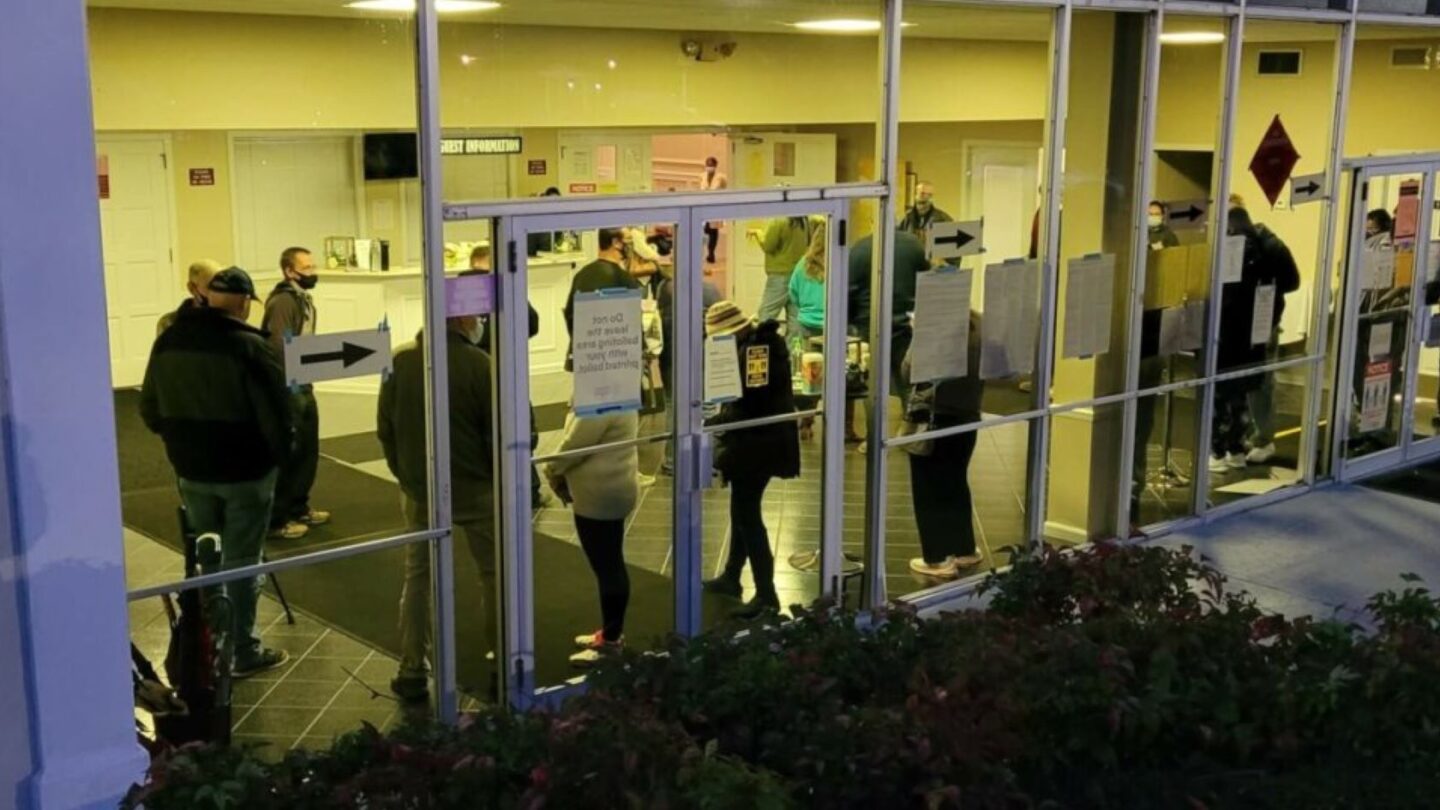Election officials largely reject voter eligibility challenges under Georgia’s new election law

The eligibility of tens of thousands of Georgia voters is being challenged ahead of the midterm election on Nov. 8, with Cobb County and Chatham County election boards the latest to reject attempts to remove people from the registrar’s rolls.
On Monday, the election boards in the Atlanta suburbs and Savannah community rejected more than 1,500 eligibility challenges launched against registered voters. The mass voter challenges typically filed by Republicans cropped up in the weeks following the 2020 presidential election in which former President Donald Trump’s loss to Democrat Joe Biden included defeats in swing states like Georgia and Michigan. Prior to the January 2021 Senate runoff elections in Georgia, right-wing group True the Vote compiled a list of 364,000 voters to challenge.
Marietta resident Eugene Williams was one of the residents on Monday who challenged the status of 1,350 Cobb voters without an identifiable address.
“I guess it really kind of begs the question, do these people even exist necessarily, you don’t know,” Williams said. “Everything you send to them is going to return undeliverable.”
Williams and others making the challenges in Cobb presented no specific evidence of illegal votes as they tried to use Georgia’s law to purge what they called inaccurate voter lists. The state’s controversial election overhaul includes a provision that allows any Georgia voter to challenge an unlimited number of other voters in their county.
Across Georgia, advocacy group VoterGA and some residents have launched challenges against thousands of registered voters, most of them alleging they are not complying with eligibility laws because of incomplete mailing addresses, such as missing apartment numbers and P.O. boxes.
According to the League of Women Voters, out of the 25,500 challenges made by VoterGA, only 1,800 have resulted in registration cancellations.
A purge attempt by the Gwinnett County Board of Elections resulted in the board rejecting most challenges in the upcoming election on Nov. 8 and contested votes from 2020, although hundreds of registrations remain under review.
Cobb’s election board chairwoman Tori Silar said Monday’s vote will keep voters on the rolls and allow election workers to move forward with preparations for the upcoming election.
The inquires are seen by critics as attempts to disenfranchise people of color and college students.
The three-week early voting period begins Monday, Oct. 17 for a midterm election in which a strong turnout is expected to put Georgia’s new election system to its first big test, with high stakes races on the ballot for a U.S. Senate, governor, congress, attorney general, secretary of state, lieutenant governor, and state Legislature in Georgia. Tuesday is the last day to register to vote in time for the Nov. 8 midterm election.
On Monday, the Cobb board rejected the voter registration challenges due to lack of probable cause, with the claims being based on missing apartment numbers and dorm names at Kennesaw State University.
Silar said that the lack of individual challenges instead of complaints bringing mass challenges presents problems for the board pushed to make a decision with an election just weeks away. After leaving college, she moved into a complex without specific unit numbers, which would’ve put her at risk of not being able to vote under these blanket challenges.
The board voted 4-1 to reject the appeals, with Republican Party appointee Pat Garland casting the lone no vote.
“The board is not required to make an individual inquiry,” Silar said. “We are to evaluate each challenge on its (merits) but I don’t know that I can make the assumption that 1000 Chastain Road there aren’t apartment numbers.”
Caitlin May, voting rights attorney for the ACLU of Georgia, said that voters shouldn’t be flagged for review or removed from the rolls by going against state and federal laws, which includes the National Voter Registration Act that prohibits the systematic removal of voters within 90 days of an election.
“Barebones challenges to voters in the immediate run up to an election places an undue burden on voters,” May said at Monday’s meeting.
The protocols are most commonly used when someone knows that a neighbor has moved, for example, which is a big difference between that targeted challenge and presenting a long list of empty apartment or dorm numbers, May said.
“This means that to sustain these challenges today, the board must find that each voter by more than a mere suspicion is not eligible to vote in Cobb County,” she said. “They would need some individualized evidence of each voter being challenged to do this.”
And in Cobb, resident Debbie Fisher dismissed allegations on Monday that the challenges were malicious in their attempts to disenfranchise voters.
“I just want to bring to light since we have a lot of people here opposing cleaning up voter rolls, that no one that I know has ever submitted a name to be removed from the rolls to be vicious,” she said. “It’s because we have an obligation to clean up these rolls.”
But one organization leading the fight against the mass challenges, the Georgia Coalition for the People’s Agenda, noted that any voter removed from the list would likely not be notified before Tuesday’s voter registration deadline and wouldn’t be able to cast a ballot if there is a December runoff, which recent polls suggest is likely.
Eligibility challenges have been heard in multiple counties across the state, including Gwinnett County, which dismissed all of their challenges on Oct. 3.
Savannah TV station WTOC reported Monday that Chatham County Election Board Chairman Colin McRae urged some residents to verify their addresses before casting their ballots.
To resolve the issues, the registrar’s office will send notices, he said.
“The people who have incomplete address information are going to need to show it in order to be able to vote and there’s very few of those, but they would have received notices at their mailing address asking that we need your information on your residential address,” McRae said.







